How to Take a Healthful Onsen Bath
Rinsing Off
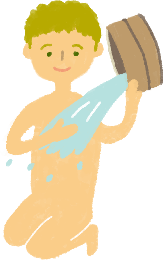
Sit down and rinse your body with hot water using either a bucket or shower. It is the custom to remain seated when washing your body with soap. When first pouring hot water over your body, start pouring on places farthest away from your heart.
Point!
Rinsing off and washing like this not only helps to clean off sweat and dirt from your body, but it also lets your body get accustomed to the hot water, thus reducing the strain on your heart.
Wash Your Body
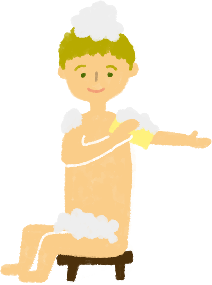
Wash your body thoroughly before bathing.
Enter the bath smoothly and quietly. Towels are not allowed in the bath. These days, more and more people enjoy sitting on the edge of the bath with just their feet in the hot water for a foot bath or ashiyu, while others sit in the water so that it goes just around the stomach area for a half-body-bath, or hanshinyoku.
Harf Body Bath / Foot Bath
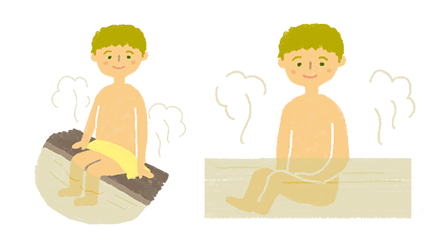
There's much less chance of feeling dizzy or lightheaded from the heat of the water if only your lower legs or lower body are in the water. Doing so also puts less strain on the heart, and yet still provides effective body healing benefits. The whole body can be warmed even if the whole body is not in the bath.
Whole Body Bath
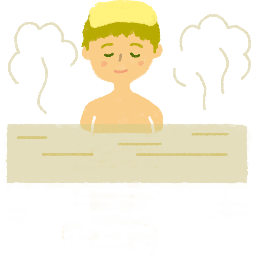
After adjusting to the hot water by soaking your legs and lower body, you can fully enter the bath.
Point!
The hot water can put a strain on your heart, so be aware of changes to your physical condition when entering the bath. When leaving the bath, do not stand up suddenly. Standing up too quickly can cause dizziness-ness.
Rehydrate
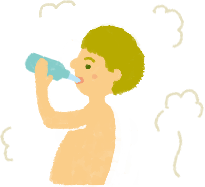
Increased perspiration can lead to dehydration and loss of salt. Make sure to keep yourself adequately hydrated.
Point!
Outdoor baths, called rotenburo in Japanese, are particularly refreshing as your head will stay pleasingly cool, but you should mind the large difference in temperature between the hot water and outside air.
Each onsen bath has its own unique water composition and associated health benefits. However, they can cause negative side effects for those with particular illnesses or health conditions. These are known as contraindications, or kinkisho. They vary from bath to bath based on the particular mineral composition of the spring.

